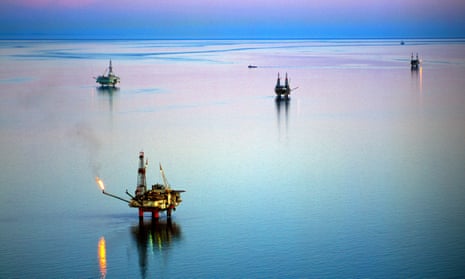Timor-Leste’s decision to rip up a treaty with Australia on the carve-up of future revenue from Greater Sunrise oil and gas reserve in the Timor Sea could make it an “architect of its own demise”, experts have told a parliamentary inquiry.
In January Timor-Leste announced it wished to terminate the treaty which split future revenue 50-50 with Australia and put a 50-year moratorium on a permanent maritime boundary.
Greater Sunrise is estimated to hold 9trn cubic feet of gas and 300m barrels of condensate and liquefied petroleum gas worth about $53bn.
Federal parliament’s joint treaties committee is examining amendments to the treaty on certain maritime arrangements in the Timor Sea so that it can terminate on 10 April.
A hearing in Canberra on Tuesday was told a major factor in the decision to walk away from the treaty was Timor-Leste’s desire for a pipeline for processing resources on its shores, rather than a floating platform, as previously proposed by Woodside Petroleum, or a pipeline to Darwin.
A La Trobe University lecturer, Rebecca Strating, said paradoxically Timor-Leste’s ambitions to secure its sovereignty and economic development could undermine its capacity to develop.
She said there were some indications Timor-Leste was “resource cursed”.
“To go back to the idea of the architect of its own demise, it’s very possible that it could be,” she told the hearing. “This pursuit of independence may actually create a failed state in Timor-Leste.”
The hearing was told oil revenue made up 90% of Timor-Leste’s budget and roughly 80% of the country’s national income was derived from oil.
Oil from the Bayu-Undan field in the joint petroleum development area will be depleted by about 2022 and Timor-Leste’s petroleum wealth fund could be dry by 2025-28.
“If there is no agreement on Greater Sunrise it will create an aid-dependent state,” Strating said.
The University of Wollongong’s Prof Clive Schofield echoed that view.
“To achieve anything better than a 50-50 split, to put the whole of Greater Sunrise on the Timorese side of the line, that’s drawing a long bow,” Schofield said.
Earlier, Department of Foreign Affairs and Trade officials told the hearing the treaty’s demise would not impact on resource companies operating in the area.
Australia and Timor-Leste governments are taking part in conciliation in The Hague over the ongoing maritime boundary dispute. Woodside has put on hold plans to develop Greater Sunrise until there is certainty over revenue sharing between the two countries.
Timor-Leste citizens go to the polls on 20 March with a possible run-off on 20 April.

Comments (…)
Sign in or create your Guardian account to join the discussion